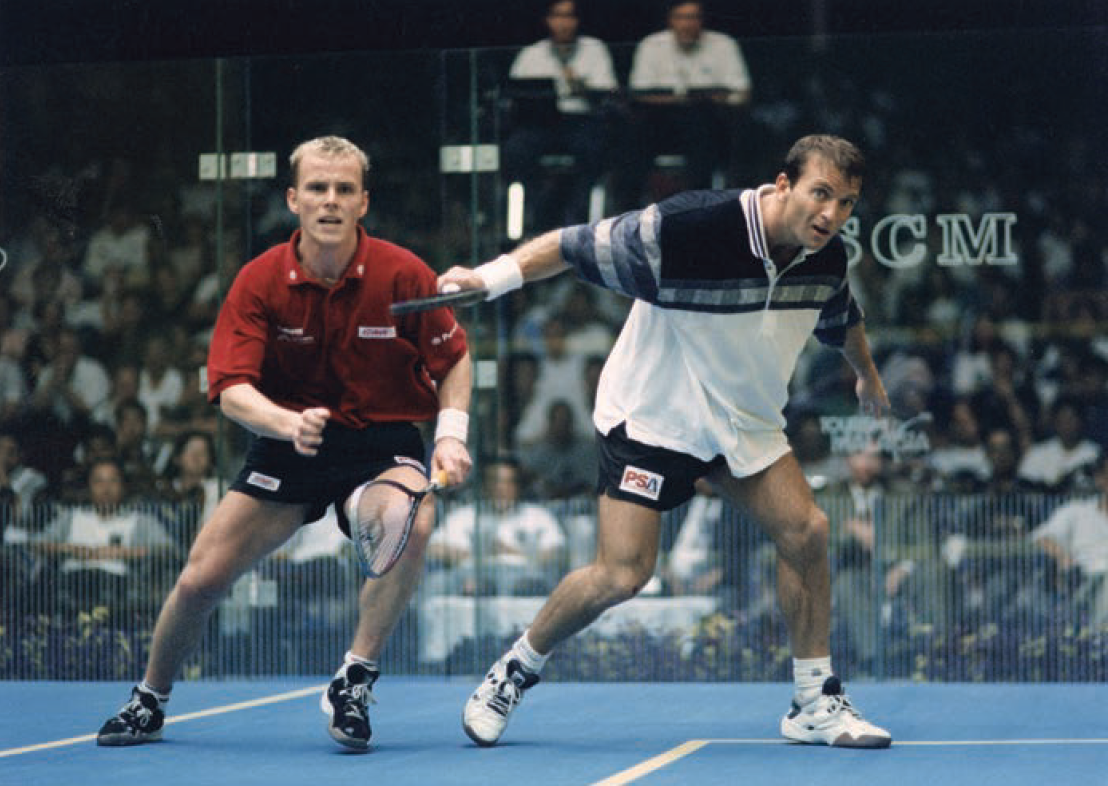
By Peter Nicol
I found out the hard way how difficult it is to play and be successful in major events. As a young professional, there were really only two recognized major events—the British and World Opens. By the end of my career, outside of the World Open, there were several tournaments you would consider to be part of a Grand Slam in squash—the Tournament of Champions and the Hong Kong Open ranked as more important events in the calendar (they certainly did for me)—and now one would definitely add the U.S. Open to that list. So, what is different about these events, and why do you have to approach them differently?
For me, any event that held more significance immediately added pressure to the mix. On turning professional, I wanted desperately to win the British Open and proceeded to not win a single match for the next five years at the event! I put pressure on myself and made the whole event into such a big occasion that I ended up freezing up and playing average squash. What didn’t help was my opponents really smelled the fear in me and played better, taking full advantage of the situation.
To overcome this paralysis, I started to work on mentally relaxing and accepting the fear and anxiousness I had leading into those events. I was fine at all other tournaments, so I began to think this was wrapped up in trying too hard. To do this I remembered and visualized myself before going onto court at a previous major event in order to understand how I actually felt. I realized immediately that I struggled to breathe easily and also felt physically numb. To improve my breathing, I relaxed my whole body and took long slow breaths, bringing all of my focus to keeping the breath long and steady. I remember doing this breathing technique for the first time and almost crying as I felt the pressure release from every part of my being. The numbness lifted, and I could feel my legs and hear noises around me. This may sound quite dramatic to many, but this was my experience and hopefully will translate to some constructive relaxation techniques if needed in your tournament preparation.
Once I began to overcome my anxieties, I started reaching finals of the majors but still came up short. It was frustrating that the technique I used to stay relaxed and perform well always let me down at the end. I was not putting in a World Champion’s performance in the final to win the event. I realized that, by the time the final came around, I had put pressure back on myself; everything had gone full circle, and I needed to be in a more alert state.
A final that really stood out for me was my loss to Rodney Eyles in the World Open in Malaysia 1997—he played almost perfect squash and I had just gone out there with my same attitude and game plan, which was sorely lacking. The tough loss did, however, provide me with the learning experience and drive to turn a six-match losing streak to Jonathon Power into a Commonwealth Games Gold in 1998. The night before the match I watched a really rousing movie, along the lines of Braveheart or similar, went to bed and slept wonderfully. The morning of the match I was snarling around with energy, and I remember worrying slightly if I was going to be tired later on, so I spent some time relaxing, both physically and mentally. By the time I went on to play, Jonathon would only have beaten me if I needed to be carried off the court. That was my energy and resolve. Nothing was going to stand between me and that win, and I never let any other thought into my head.
I’m not sure what a sports psychologist would say about the above. My techniques were fairly primitive but suited me at the time. To anyone out there who has struggled at their own “major” events, whether it is a club championship or junior event, I would encourage an honest appraisal of your roadblocks. I really hated knowing I was scared and nervous about playing an event and believed I was better than that—I truly believed this. It was as simple as that. If you are honest with yourself, and of course prepare physically, I imagine you will be able to perform at your best more often than not.
I always look forward to seeing who comes out as the winner of major events, as much for their mental struggles and victories as their squash playing abilities. I wish you the best of luck in your major events ahead!





